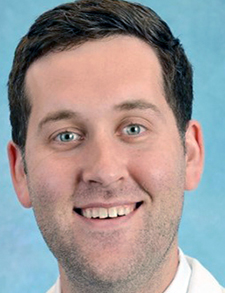Frailty Assessment and Perioperative Adverse Cardiovascular Events After Noncardiac Surgery

Dr. Chandler
Clinical question: Can a frailty assessment tool be used to identify patients at higher risk for major adverse cardiac events (MACE) prior to noncardiac surgery?
Background: Studies have outlined the risk of increasing frailty on overall health outcomes and hospitalizations and as a possible risk factor for complications after noncardiac surgery. The association between frailty scores and perioperative MACE is limited.
Study design: Retrospective cohort study
Setting: Administrative data of patients aged ≥45 hospitalized for noncardiac surgeries between 2004 and 2014 in the U.S.
Synopsis: Using the National Inpatient Sample database, 55,349,978 hospitalizations for noncardiac surgeries were identified. Patients were stratified into frailty categories using the validated Hospital Frailty Risk Score (HFRS). Perioperative MACE occurred in 2.5% of all hospitalizations. However, in those with high and medium HFRS scores, there was a significantly higher risk of MACE (9.1% and 6.9%, respectively) compared to the low frailty cohort (1.3%, P <0.001). High HFRS also carried a significantly increased risk for discharge to skilled nursing facilities compared to medium or low frailty scores (63.5%, 44.5%, and 17.6%, P <0.001). This retrospective review had multiple limitations including lack of comparison to validated cardiac risk calculators; however, the study results mirror prior research that patients with lower metabolic equivalents and more comorbid conditions are at higher risk for MACE following noncardiac surgery.
Bottom line: The HFRS could be used with other cardiac risk calculators to help stratify patients at higher risk for MACE, inform risk and benefit conversations around surgery, and help plan the expected discharge destination.
Citation: Siddiqui E, Banco D, et al. Frailty assessment and perioperative major adverse cardiovascular events after noncardiac surgery. Am J Med. 2023;136(4):372-9.
Dr. Chandler is a med-peds hospitalist at Duke University Hospital and assistant professor in the departments of medicine and pediatrics at Duke University School of Medicine in Durham, N.C.